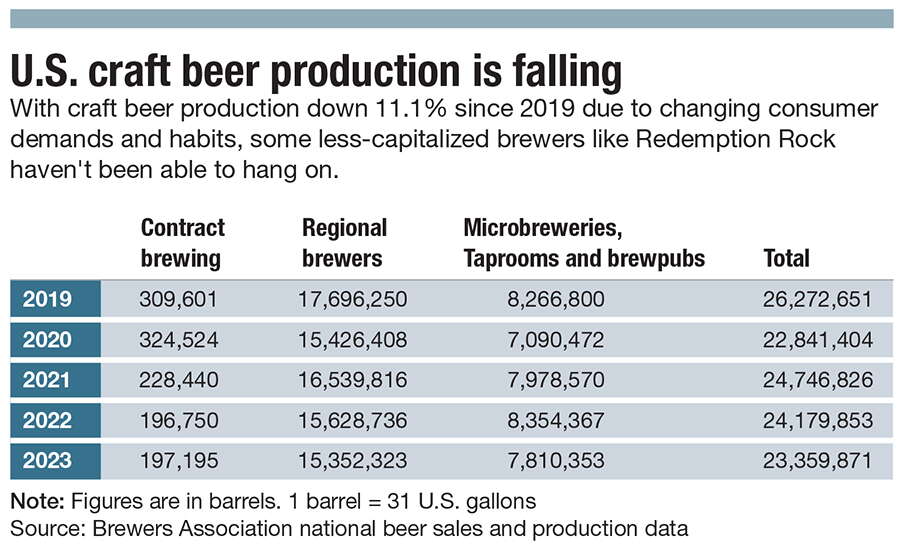
Q&A: What happened to Redemption Rock?
 photoS | COURTESY OF REDEMPTION ROCK
Dani Babineau (front row, third from right), Greg Carlson (front row, second from left), and Dan Carlson (middle row, behind Dani) pose with Redemption Rock employees from past and present on the brewery's final night of operation on Dec. 29.
photoS | COURTESY OF REDEMPTION ROCK
Dani Babineau (front row, third from right), Greg Carlson (front row, second from left), and Dan Carlson (middle row, behind Dani) pose with Redemption Rock employees from past and present on the brewery's final night of operation on Dec. 29.
Redemption Rock Brewing opened in an industrial area off Worcester’s Shrewsbury Street in January 2019, later becoming the first certified B Corp. craft brewery in the state in the process. Founded on a mission of giving back to the community while providing residents with a third space outside of home and work where they could socialize and connect, the brewery’s warm atmosphere and uniquely local brews quickly made it a favorite of the city’s food and beverage scene.
Yet, after a six-year run which saw the business brew thousands of barrels of beer, donate tens of thousands to local nonprofits, and navigate the complications of COVID, Redemption Rock closed its doors for good on Dec. 29. WBJ sat down with co-founders Dani Babineau, Dan Carlson, and Greg Carlson to discuss the reasons behind the closure, the realities of running a small business in Worcester, and the legacy the brewery left behind.
When did you first think about closing?
Dani Babineau, CEO: We spent a long time just waiting for the hammer to drop, essentially. Or waiting to get to the point where we needed to make that decision. We spent years since the pandemic just waiting for things to pick up and waiting for things to turn around.
Dan Carlson, head of marketing: We spent the post-COVID years trying to do more, really hitting hard on events, trying to increase wholesales, trying things like seltzer and cocktails and investing in the cafe program. All of those things worked to an extent. They were popular, but it just wasn’t moving the needle.
Dani: I remember spending a year saying, “Just a couple of good weeks.” Then it became a point where we kept falling far enough behind that it was like, “Okay, well, we need a couple good months.” We had one spring that was really good, and we were moving in the right direction.
And then the bottom fell out.

How did the overall struggles of the craft beer industry factor in?
Dani: We didn't make the decision to close because of the current state of the beer industry. For a brewery that was under capitalized, our expenses were way too high. We had a lot of factors working against us, and some of those were the same consumer-driven factors impacting the whole industry.
Dan: When things like the downturn in craft beer happen, it tends to impact people who are in the weakest position. If we were doing it all over again, we would have done things differently.
Like what?
Dani: We would have rented a different location.
Greg Carlson, brewer: That was probably the biggest issue. At the time it made sense, because we were coming from the Boston market. The Worcester market was, and almost certainly still is, cheaper than the Boston market, which is what our frame of reference was.
Dan: There were obviously other issues with the space than the cost. The brewery was hard to find, and the parking situation was a bit counterintuitive.
Greg: Those are the compromises you have to make, because there’s no such thing as a perfect location. But when you go through a pandemic, then inflation, and then an overall drop in market growth, and a lot of the small businesses in Worcester were struggling, those compromises turned into real problems.
Dani: We signed a lease we probably shouldn't have signed. Honestly, if COVID had never happened, we probably would have been okay. If things had continued in the direction they were headed pre-COVID, we probably would have been fine with an overly expensive lease. But where revenue was given COVID, it was too high of a percentage of our overall revenue to be sustainable. The landlord had no appetite to work with us, and that was a significant issue.
Could the City of Worcester do more to support small businesses?
Dani: The City could do more to support small businesses. We got some grants, but they’re reimbursable grants. You have to spend the money up front and then get reimbursed on it. That's tough for a lot of small businesses.
The City’s economic development office’s priorities are set by the administration, and they're stretched thin on what they're able to do and under-resourced. The message from them was always, “Tell me exactly what you want, and let me see what I can do,” versus really making it a priority to support small businesses and creative businesses. Why don't we have some sort of small business task force going out and actually talking to businesses?
Greg: Most of the grants and help from the City came before or during COVID. Post-COVID has probably been harder for small businesses than the actual pandemic itself. Since COVID, it was basically nothing from the City.

Dani: When Worcester boutique grocer Maker to Main closed in January 2024, the statements from the City were very generic. When we closed, no one said anything. The selling point of Worcester is not only a lower cost of living — for now — but a cool, grassroots community. So where is the promotion, and where is the support of that?
Dan: The City doesn't celebrate small businesses like it used to. But I want to be clear: Could the City have done more to save us? Maybe, but maybe not. I’ve had a lot of people reach out saying they wish they could have done more.
I don't think there's anything more we could ask of our community or customers. We had a lot of people in our corner.
The last month of operations, particularly the final two nights, saw large crowds at the brewery. Were you frustrated that level of customer support wasn't there the whole time?
Dani: No. People can be like, “Oh my god, that place closed? I hadn't been there in two years, but I loved it.” We recognize over the years people's lives change. People are going out less. So we really don’t blame people for that.
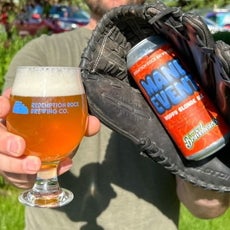
We did a lot more revenue in our last month open than we had been doing for forever. We had our best month ever.
I can't really blame anybody.
Greg: Traffic definitely never went back to that pre-COVID level. It's hard to blame customers for that, because we all feel the same stuff, right? We're all going through the same economic problems stopping people from supporting us.
Dani: Talking to other breweries, from a revenue perspective we did pretty well. Our expenses were just too high. Any big moves we might have made, such as putting in a kitchen or opening for different hours, would have required investment. We didn't have any money to do that. We really didn’t have access to capital or high-wealth people, and we didn’t have the ability to take on more debt. We tried to grow in less expensive ways, but those aren’t as impactful.
Redemption Rock seemed to have a small, tight-knit staff. Was breaking the news to them one of the more difficult parts of closing?
Greg: Yeah, easily the worst part.
Dan: Toward the end, things were clearly not good. I don’t think any of them were particularly surprised, but they were quite sad.
Dani: They enjoyed working together, enjoyed the mission, and enjoyed the customers. That's the worst part for us: Not having this team, not working with these people, not seeing our customers, not having this space. They were all pretty devastated.

On social media, the big question after the closure announcement was what will happen to Jimmy, the brewery's cat. Looking at his Instagram, it seems like he's settled into retirement.
Dani: He ended up being adopted by a friend of our social media manager. There was a little bit of a transition because they have another cat, and he was a bit anxious and aggressive when he first moved. He kicked them out of their bed the first night, but now he’s doing great. He’s got windows he can look out everyday. He's a happy, happy boy.
What is Redemption Rock's legacy?
Dan: Letting other people take advantage of what we're offering, with nonprofits, artists, workshops, and pop-ups. If we had any degree of success, it was allowing collaboration, allowing creativity, and allowing people's happiness.
Dani: I've seen some comments like “Oh, well, if you guys can't succeed, what am I even doing?” I want to flip that narrative on its head and hope what we were able to do was inspire other people. We made it six years, with no money in the bank when we started.
Greg: People that start businesses have their passions and their creative energy. Hopefully, we give people the idea if you just create space for other people to come in and share their passion and their creativity, you can create something much bigger than you could ever do on your own.
This interview was edited for length and clarity by WBJ Managing Editor Eric Casey.
I'm so sorry - it really is a crappy time to own a small business. I wish you guys the best of luck in whatever you move on to. I'll miss Redemption Rock.







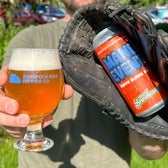
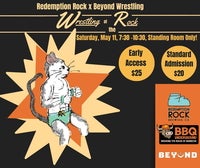
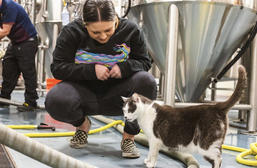



1 Comments